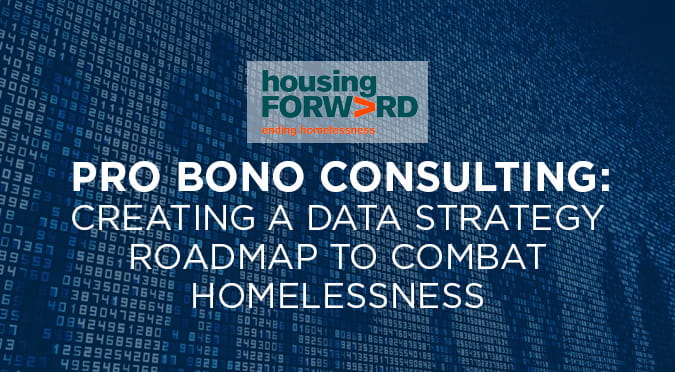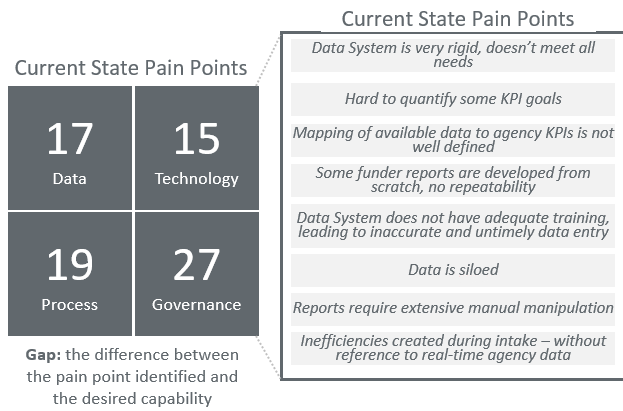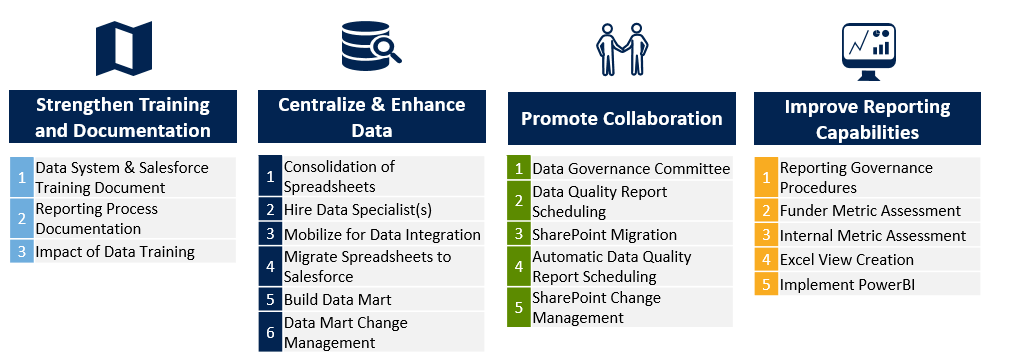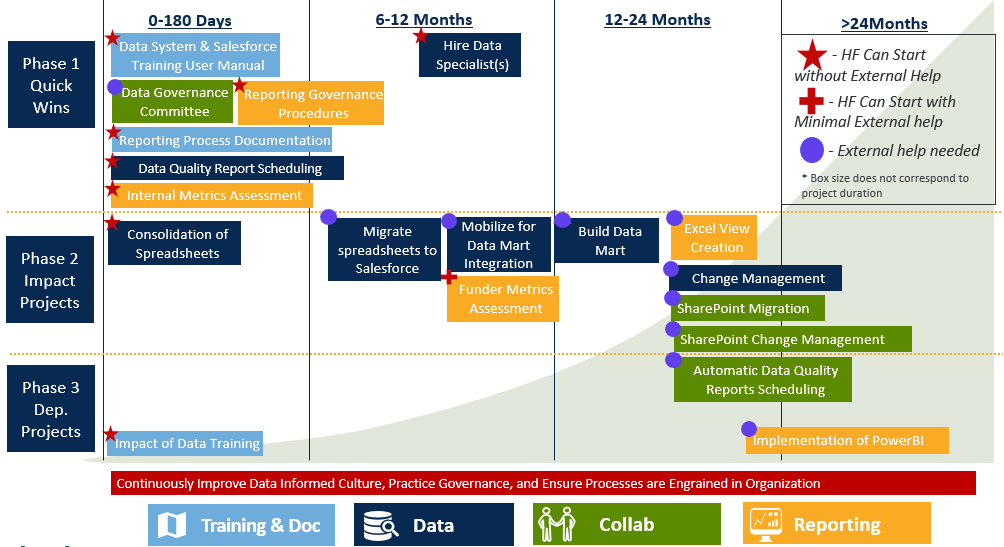Pro bono consulting: Creating a data strategy roadmap to combat homelessness
"Data is driving life and death decisions and we do not have good data.”
Given that most data strategy projects aim to improve business value through processes such as profit maximization, customer retention, or cost cutting, it is rare to participate in a project where understanding and organizing a client’s data so directly contributes to saving lives. However, I recently had the opportunity to do just that while working on a pro bono project through West Monroe’s 1+1+1 program with Housing Forward, a Chicago-based homelessness philanthropy dedicated to transitioning people from housing crisis to housing stability. Over the past 26 years, Housing Forward has developed a unique and integrated approach that has transformed the lives of more than 17,000 people to date, providing everything from emergency assistance to permanent housing services.
Housing Forward engaged West Monroe to create a data strategy roadmap which would integrate into their organizational three-year plan and help them create an efficient and effective data-driven culture. In their current organizational state, Housing Forward found it difficult to manipulate and analyze data, which severely limited their ability to track and better help the homeless individuals who came to them for assistance. An ideal roadmap would lay out concrete steps to reduce inefficiencies within Housing Forward’s data while considering Housing Forward’s unique position and limitations as a non-profit entity.
Identifying Pain Points
As a first step toward creating this roadmap our team conducted interviews with several different Housing Forward stakeholders from across the organization. We interviewed 11 different Housing Forward staff members about data governance, data analytics, and organizational effectiveness to identify pain points within the organization. Through these interviews we identified 78 different pain points distributed amongst the topics of Data, Technology, Process, and Governance, ranging from minor inconveniences to major organizational roadblocks.
One of the most common recurring themes that we saw throughout our interviews was a reliance upon siloed data and a lack of a single source of truth, making data analysis and wrangling incredibly difficult. While these problems are painful and complex to solve, they are unfortunately common amongst many of our clients. With a set of pain points identified, our team was tasked with utilizing West Monroe’s expertise in data strategy to create a set of recommended actions to alleviate this pain. In order to do so, we utilized a wide array of experience helped our team to consider an expansive set of potential actions, ranging from building visualization options on top of existing data sources to creating an entirely new data mart.
Our Recommendations
To address the identified pain points, our team identified several recommended projects for Housing Forward. These projects fell into four separate categories: Strengthen Training & Documentation, Centralize & Enhance Data, Promote Collaboration, and Improve Reporting Capabilities.
Strengthen Training and Documentation: We heard from Housing Forward that their staff didn’t know what data existed in the organization. In addition, they spent hours manually entering data and correcting data entry errors. The goal of Strengthen Training and Documentation was to provide visibility into what data was available, allow efficient data entry, and reduce the overhead caused by manual errors.
Centralize & Enhance Data: The most critical issue Housing Forward described was the siloed nature of their data. They were unable to consolidate their data from different systems and did not have a reliable single source of truth. To address this, we recommended that Housing Forward invest in a data mart, which would contain all of their different systems’ data in a single, organized place.
Promote Collaboration: Another major issue was the lack of communication between the six different programs within the organization. We recommended they migrate the current shared network drive system onto a SharePoint platform, which would keep the organization’s documents secure, increase accessibility, and allow for version control. Additionally, we recommended that Housing Forward develop a data governance approach to oversee and standardize data entry, usage, and retention policies.
Improve Reporting Capabilities: Housing Forward told us that they struggled to gain insights from their data and track progress against their goals. We recommended they create simple, user-friendly reporting on top of the data mart. In addition, we recommended metric assessments which would guide what data they chose to track and report on.
The Deliverable
We synthesized these recommendations into a two-year phased plan that can be seen below. In addition to creating a timeline, we identified quick win projects that could be completed in under 180 days, with little or no external assistance.
At the end of our six-week project, we presented this finalized roadmap to both the project stakeholders and the board of directors for Housing Forward. With the buy-in of these parties, the roadmap will now be executed by Housing Forward with some external support from West Monroe. I am eager to watch how these data-driven initiatives can ultimately lead to better lives for suburban Cook County’s homeless population. I feel blessed to have worked on such an impactful project through West Monroe and look forward to our continued involvement with Housing Forward.





